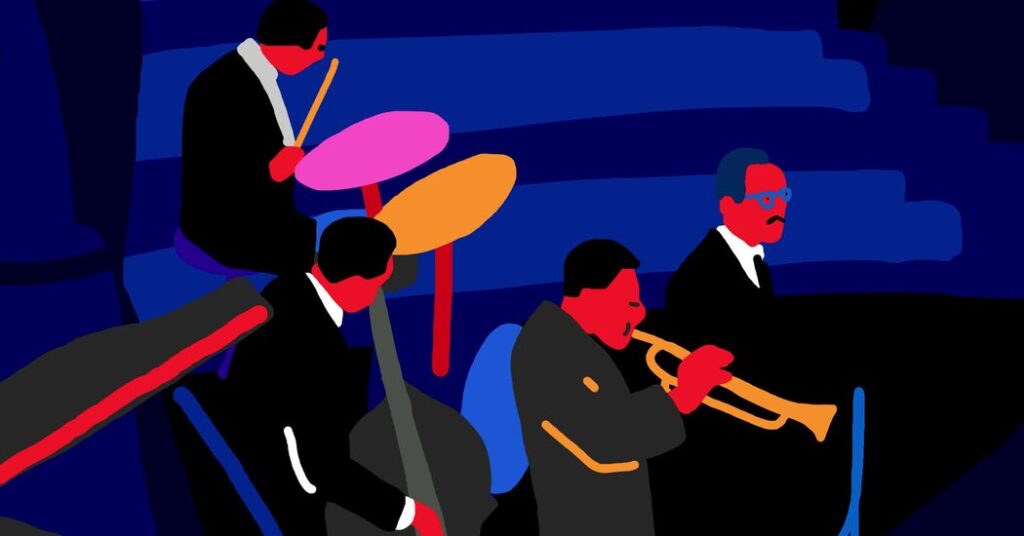Rachelle Ferrell reaches beyond what singing intended. In 1995, Blue Note released her debut album, “First Instrument,” and it was appropriately named, calling attention to the voice as an inseparable figure in jazz that highlights the body as the blueprint for music technology. The song on “First Instrument” that epitomizes her mastery for me is “Autumn Leaves,” one of the most recorded songs in jazz history. Ferrell’s hands on parts of the standard render it illegible. She stutters, stunts and stages a layered sonic signature that introduces the world to what it means to personify jazz. Relying on every part of the body, “Autumn Leaves” in her care is colorful and textured. The physicality of her voice requires an unlearning of what we’ve in the past called a song. Ferrell demonstrated to listeners in real time what happens when the mouth dances with the tongue, pushing her six-octave range through and past the spaces in her teeth.
Too often, women vocalists are not taken seriously for their innovative approaches to traditional jazz, which shape and redefine the genre. Rachelle Ferrell arranges, composes, sings and writes lyrics that reckon with the multitudes of jazz possibilities. “Autumn Leaves” is a case study in compositional excellence.
▶ Listen on YouTube
◆ ◆ ◆
Robert Glasper, “Afro Blue”
Hugh Morris, writer
“Black Radio,” the long-running Robert Glasper Experiment series on Blue Note, is built on metaphors of flight. “Like the aviator’s black box, black radio holds the truth and is indestructible,” Angelika Beener writes in the first album, from 2012. And, on Glasper’s flip of the Mongo Santamaria standard “Afro Blue,” the Experiment cruises, as if at altitude.
Glasper’s early Blue Note discography plays with the duality of pushing forward and leaning back. “In My Element,” his debut, veered between these axes, and an instrumental representation of that duality — acoustic trio versus electric Experiment — became an entire concept album, “Double Booked.”
On “Afro Blue,” you feel a sense of relief, as Glasper, rather than partitioning his voice, finds a synthesis that’s deep and comfortable. Santamaria’s polyrhythmic triple time becomes a down-tempo four; Chris Dave’s skittering drums provide a J Dilla-ish frame, while the guest vocalist Erykah Badu floats through the lyrical idyll written by Oscar Brown Jr. It turned out to be a milestone; “Black Radio” was a critical and commercial success, and Glasper found a laid-back sound and textural role that he’d play in myriad future projects. In the moment, though, “Afro Blue” felt only like an exhale.
▶ Listen on Spotify, Apple Music or YouTube
◆ ◆ ◆
Donald Byrd, “Chant”
Laurin Talese, vocalist, composer and educator
This song feels like catching peak fall foliage — rich, vibrant and unforgettable. It’s the car ride to your grandmother’s house after a marathon church service, knowing the best Sunday supper is waiting for you … like a rainy day off, ducking in and out of cozy bookshops and cafes … or flipping open The Book and landing on just the psalm you need.
“Chant,” from Donald Byrd’s “A New Perspective” (1964), is my favorite track in the Blue Note catalog … at least today. This album is a trailblazer, effortlessly weaving jazz and gospel in ways that still feel fresh. Featuring the eight-voice Coleridge Perkinson Choir, the music ascends to something sacred.
On “Chant,” Byrd’s warm, lyrical trumpet floats above a dreamy cast of musicians: Hank Mobley (tenor sax), Herbie Hancock (piano), Kenny Burrell (guitar), Donald Best (vibraphone), Butch Warren (bass) and Lex Humphries (drums). In the original liner notes, Byrd described his vision to create a “modern hymnal that approached spiritual-like pieces with respect and pleasure.” And that’s exactly what this song invokes: reverence for life and impenetrable joy.
▶ Listen on Spotify, Apple Music or YouTube


